Classic albums featuring John Bonham
40 years since the great man's passing, we celebrate Bonzo's finest work
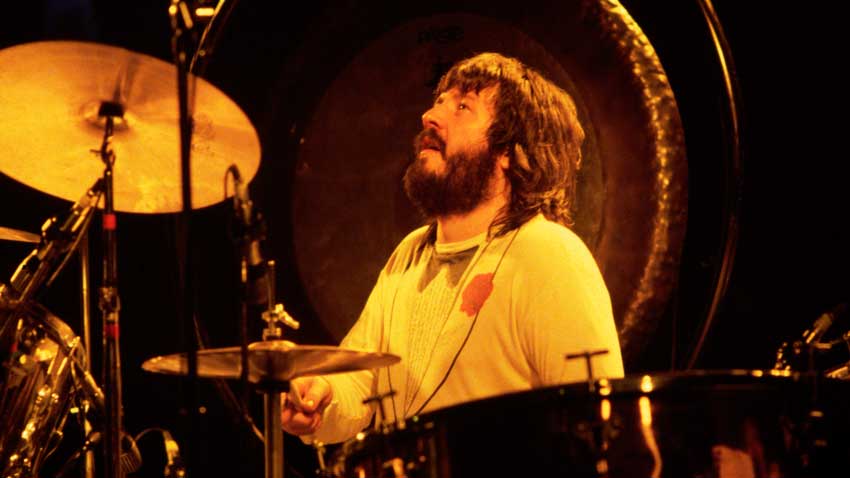
John Bonham
OK, so every album featuring Bonham was by Led Zeppelin, a band who define 'Classic'. But, as we hit 40 years since rock’s greatest drummer passed away, it seems fitting to revisit five of Zep and Bonzo’s finest.
As a drummer, Bonham had everything – the main reason he is still every drummer’s favourite, most aspirational player. His was the perfect combination of groove, feel, technique, insanely brilliant chops, innovative parts, incredible drum sound and a real passion for his instrument and for the music he played. With Zeppelin, he covered every style of music going, from slow blues to heavy rock, the smoothest soul to odd-time funk, reggae, folk, country, you name it. Crucially, he was one quarter of the greatest hard rock band of all time, and he knew it – to this end he always played for the song, and his drumming fit perfectly with whatever they were doing. Yet in spite of this, he was still able to stamp his authority and personality all over the albums.
Here we round up five of our favourite Led Zep albums to which Bonzo lent his incredible, legendary talents.
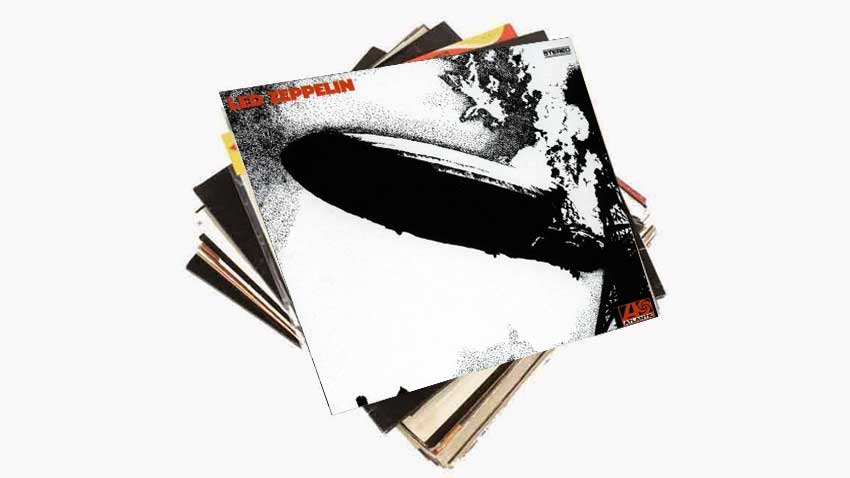
Led Zeppelin I (1969)
With its iconic Hindenburg cover –the Led Zeppelin name famously coming from a Keith Moon quip about a group with Page, Jeff Beck and The Who’s rhythm section “going down like a lead zeppelin”, the band’s first album is raw blues-rock. This was the band at their most primitive –although the musicianship that the four of them had already evolved was considerable – with many of the tracks feeling improvised, exploring a range of feels that would become the band's trademark.
From the start, Bonham’s genius lay in the simplicity of his grooves, following the riffs, and, simultaneously, complexity, as evidenced on the hugely percussive and grooving Good Times Bad Times. How Many More Times and Dazed And Confused have many cool parts to them, such as the latter’s staccato ending and huge, bombastic drumming over Page’s guitar solo; Communication Breakdown has an infectious and classic hard rock groove.
Key track: Good Times Bad Times’
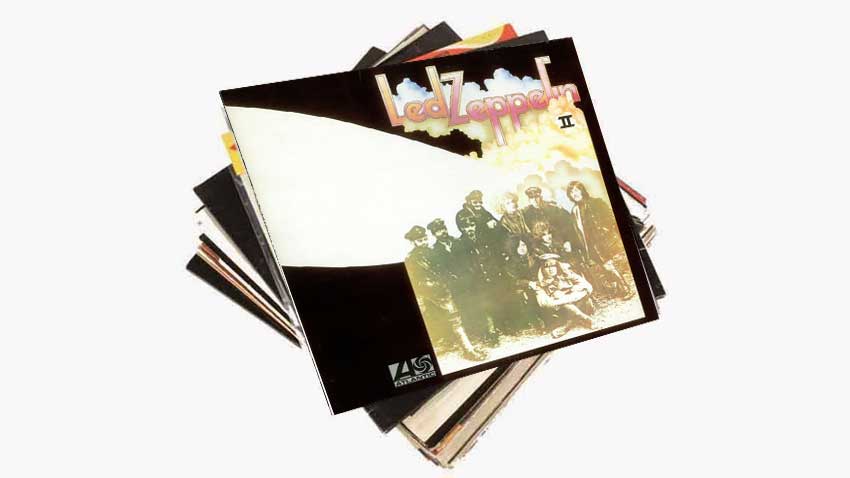
Led Zeppelin II (1969)
The ‘Brown Bomber’ was a hit both in the UK and US, and is probably the band's heaviest album, taking their blues-rock to a higher, more riff-heavy plateau –and is still a benchmark in rock that was followed in particular by a future genre called ‘heavy metal’.
But, despite this, it still runs through all of Zeppelin’s broad stylistic waypoints. There's the effects-laden drums on Whole Lotta Love, with its improvised, lengthy groove, Bonham lending it percussive motifs on his cymbals; he follows JPJ’s funky bass on Ramble On with an effective yet simple groove; the raunchy Heartbreaker with its crashing cymbals and straightahead, hit-hard rock beat, the syncopated Living Loving Maid and of course Bonham’s famous solo, Moby Dick. But there's also sensitivity, and a Ringo-like song-serving sensibility evident on the beautiful Thank You.
Key track: ‘Moby Dick’
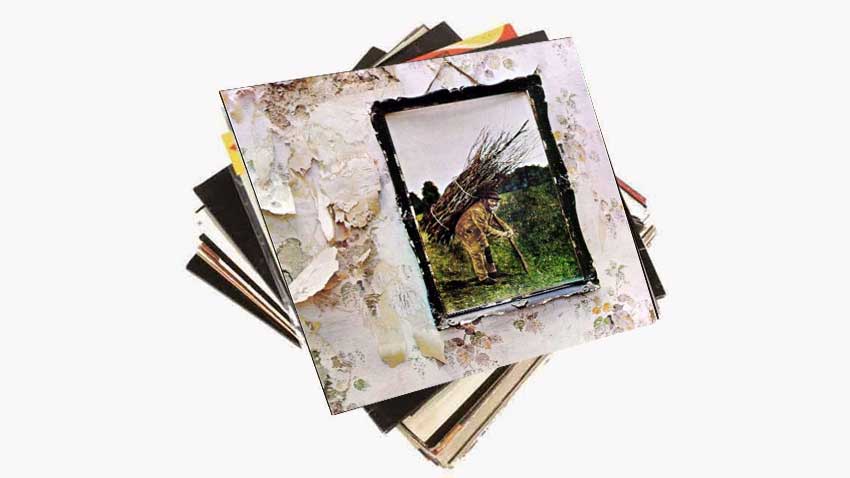
Led Zeppelin IV (1971)
After the more folksy, acoustic III, it was back to business for Led Zeppelin as they sojourned at Headley Grange with engineer Andy Johns and the Rolling Stones’ mobile studio.
With many of the album’s riffs coming from Bonham’s patterns, it is probably the album to which Bonham was most integral, and the album is packed with much-admired and emulated (and sampled) classic Bonzo beats.
Kicking off with the odd-time 5/4 Black Dog, which inspired Bonham to put a Latin funk groove behind Page’s multi-tracked guitar riffs, it's followed by one of Bonzo’s greatest drum intros, to the thunderous Rock And Roll. That drum intro, confusingly beginning on the ‘&’ of ‘3’, caused some problems for Andy Johns, who revealed to Rhythm that it “Was tough to record.
With him hitting that hard it was hard to control!” While Zeppelin’s most famous song Stairway To Heaven may not start with drums, when Bonham comes in it's one of the most impactful pick-ups in recorded history. And then there’s the matter of Four Sticks, with our hero using, literally, four sticks to play it, and the incredible groove he laid down for When The Levee Breaks, recorded at the bottom of Headley Grange’s stairwell and run through one of Jimmy Page’s echo pedals to get that fat, 'gak-ak’ sound.
Key track: When The Levee Breaks
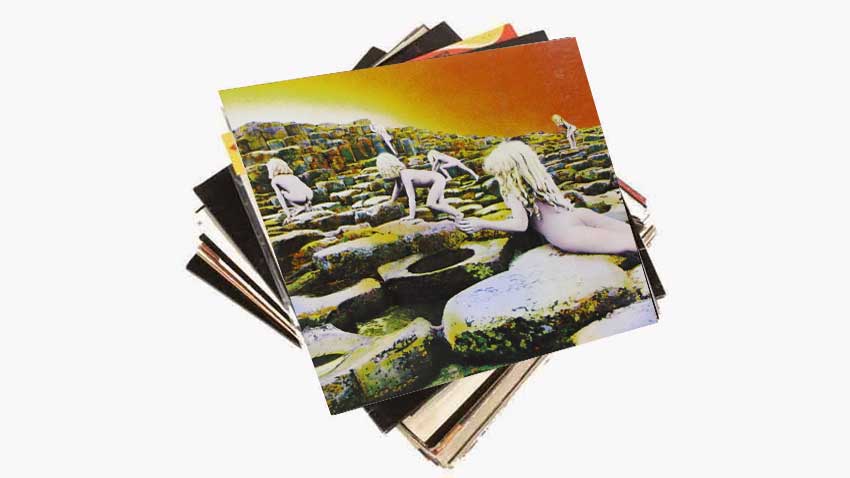
Houses Of The Holy (1973)
This time the band decamped to Mick Jagger’s country pile with the Stones mobile studio wherethe band genre-hopped like crazy. There’s James Brown-style funk with The Crunge, on which Bonham's tight groove is more than equal to Clyde Stubblefield, and reggae on the horribly-named D’Yer Maker.
The quirky guitars of Dancing Days are followed by a typically swinging Bonham groove, No Quarter contains one of Bonzo’s most intricately funky beats, while The Rain Song is gently propelled by a soft, shuffling drum cadence. The Song Remains The Same is a classic gallop recalling The Immigrant Song from III, insistent and deep in the pocket.
Key track: The Song Remains The Same

Physical Graffiti (1975)
Led Zep’s sixth was released as a double album in 1975, and was largely a bunch of out-takes and unreleased tracks. This is a band so good, that even what they didn't use first time still made for a frankly astonishing collection of songs.
Highlights for Bonham fans include the absolutely huge Kashmir, with its fat, heavy, laid-back groove behind the repetitive Eastern riff, Down By The Seaside showcases Bonham’s gentler groove playing side, the barrel-house odd-time blues of Custard Pie, the raucous, crashing syncopation of The Wanton Song and funky fat groove of Trampled Underfoot.